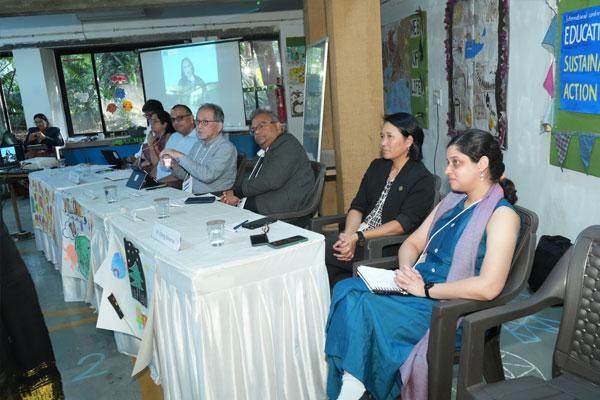The session aimed to share and review national initiatives integrating climate change into the curriculum and teacher education, explore global and Indian case studies on climate-resilient and green schools, and highlight the role of youth in developing green skills, leading climate actions, and driving the transition to a green economy. Structured as a moderated panel discussion followed by an open-house dialogue, the session provided a platform for sharing experiences, reviewing progress, and exploring innovative strategies to advance climate change education and sustainability in India and beyond.

Speakers
Panel 1: Greening Curriculum and Teacher Education


Dr Abhay Kumar,
CIET, NCERT

Prof Kiichi Oyasu,
Asia-Pacific Cultural Centre for UNESCO, Tokyo; Director of the Education Cooperation Department at the Asia-Pacific Cultural Centre for UNESCO (ACCU)
Panel 2: Greening Schools and Communities


Shri Lalit Nayaran Singh Sandu,
IAS, SPD, Samagra Shiksha Abhiyan, Gandhinagar

Dr Pratibha Singh,
UNICEF New Delhi

Ms Viveka Jani,
ClimACT Initiative